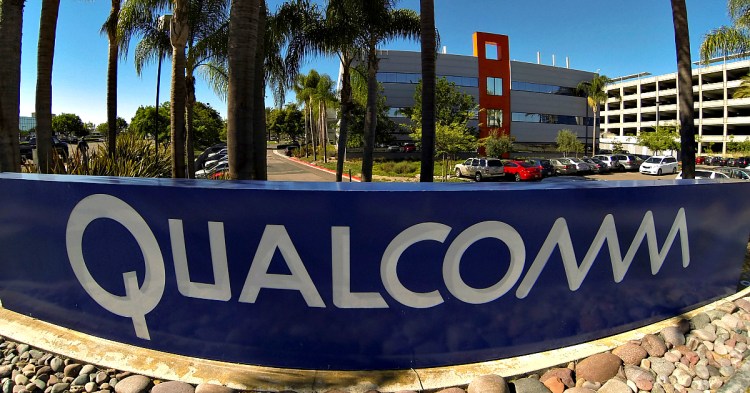Qualcomm fired back at Apple in court on Monday, saying the iPhone maker’s January lawsuit should be rejected. Qualcomm also made its own claims seeking damages, accusing Apple of harming its business and breaching deals between the two companies.
Apple’s lawsuit accused Qualcomm, one of the leading developers of cellular communications technologies, of abusing its dominant position by forcing phone makers to pay excessive royalties, even when they used modem chips from Qualcomm rivals.
But Qualcomm responded that its royalties were consistent with laws around the world and had been adopted by companies for decades. It denied blocking Apple’s ability to use competitors’ products, and said Apple had interfered with its business relationships with companies that manufacture the iPhone and other smartphones.
“We have negotiated hundreds of bilateral license agreements over the last two plus decades,” Qualcomm general counsel Don Rosenberg tells Fortune in an interview. “And those have clearly established a clear market value for the tens of thousand, now of patents that we hold in the whole area of cell technology.”
June 5th: The AI Audit in NYC
Join us next week in NYC to engage with top executive leaders, delving into strategies for auditing AI models to ensure fairness, optimal performance, and ethical compliance across diverse organizations. Secure your attendance for this exclusive invite-only event.
The Apple lawsuit, and other antitrust legal challenges against Qualomm filed worldwide, threaten the most lucrative part of the company’s business. In addition to the Apple case, regulators in South Korea, home of top phone maker Samsung Electronics, have issued a nearly $1 billion fine against Qualcomm in a similar case. The large smartphone makers appear to have seen an opening to hit the Qualcomm model after China cracked down on the chipmaker’s allegedly monopolistic practices two years ago, imposing a $975 million fine and forcing new negotiations with device makers.
Apple’s lawsuit goes to the heart of Qualcomm’s licensing model, which charges phone makers a percentage of the value of every phone, not just a cut of the price of specific modem chips used in phones. Last year, Qualcomm’s royalty licensing division reported $6.5 billion of pretax profit on $7.6 billion of revenue. Meanwhile, the company’s own chip business itself only made $1.8 billion in pretax profit on $15.4 billion of sales.
The threat has spooked investors in Qualcomm. The company’s share price has lost 12% since the day before Apple filed suit.
Counterclaims against Apple
In its lengthy response to Apple’s lawsuit on Monday, Qualcomm made a series of claims of its own against Apple for which is seeking unspecified damages.
Apple interfered with Qualcomm’s agreements negotiated with Asian contract manufacturers, Qualcomm charged. Also, after Apple opted to use a modem made by Intel in about half of the new iPhone 7 line, the company sought to forbid Qualcomm from publicly discussing the superior capabilities in Qualcomm’s similar modem.
“Our chips had capabilities that Apple chose not to use in the iPhone 7, in my belief, because they wanted to basically employ a lowest common denominator approach,” Rosenberg says. “Intel’s modem chip couldn’t do, didn’t have the capabilities that our our chips had.”
Qualcomm also said Apple violated a cooperation agreement between the two companies.
Apple claimed in its lawsuit that Qualcomm had long paid it quarterly “rebates” on royalties through the agreement, but stopped making the payments last year, prompting Apple’s litigation.
Qualcomm denies that the payments were rebates on the royalties. Instead, Qualcomm says it paid Apple in return for cooperating with engineering and development of chips and other technologies used in the iPhone. The agreements also prohibited the two companies from suing each other over patents or otherwise attacking each other directly or via government regulators, Qualcomm says.
This story originally appeared on Fortune.com. Copyright 2017

